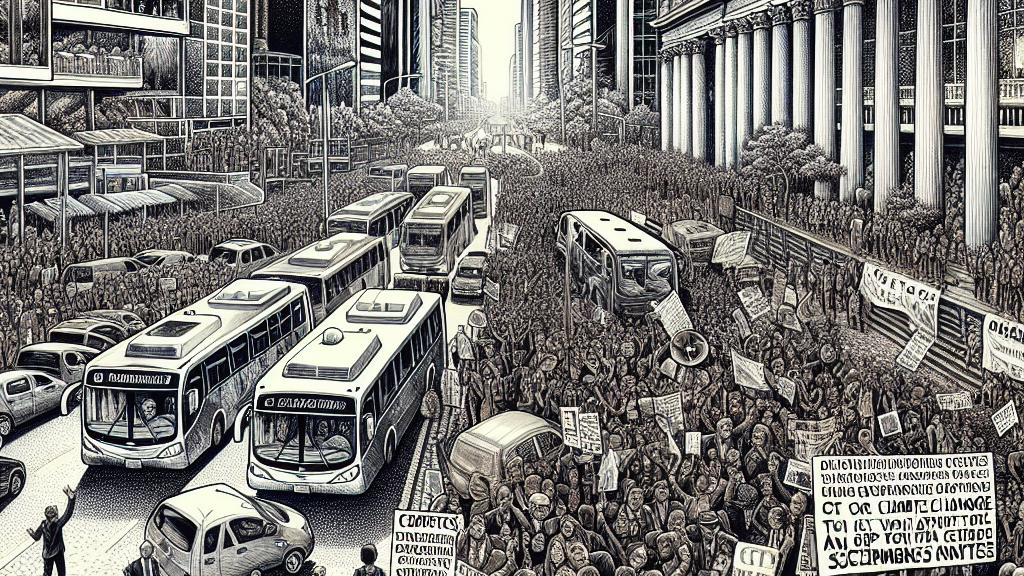Urgent Call for G20 Leadership in Climate Negotiations
Overview
- UN Chief passionately implores G20 to tackle climate change urgently.
- Crucial negotiations in Azerbaijan are facing significant impasses.
- Funding for climate efforts emerges as a pivotal challenge demanding attention.

Setting the Scene in Brazil
In the colorful, bustling streets of Rio de Janeiro, excitement mingles with trepidation as the G20 summit approaches. Amidst this backdrop, UN Secretary-General Antonio Guterres stands resolute, fervently urging the world leaders to embrace their vital role in climate action. He sharply reminds them that G20 nations alone account for 80% of global emissions. As waves of climate activists call for decisive measures outside the summit venue, Guterres’s message rings loud and clear: this is not merely a conference; it is a pivotal moment in history where leaders can choose either to tackle the looming threat of climate change or witness the further unraveling of our planet’s future.
The Deadlock in Azerbaijan
Meanwhile, thousands of miles away, the COP29 negotiations in Azerbaijan capture a different scene—one fraught with tension and stalled discussions. Inside the conference halls, delegates are bogged down in debates over a critical $1 trillion deal intended to support developing nations as they combat climate change. Complicating matters, discussions are hindered by disagreements on which countries should shoulder financial responsibilities, particularly as Western nations press for contributions from major polluters like China and wealthy Gulf states. As a specific example, while the need to expedite funding is urgent, the path to consensus remains elusive, with voices echoing the sentiment that procrastination could lead to catastrophic consequences for vulnerable populations plagued by climate-induced disasters. In this light, Guterres's urging for leadership sounds not just necessary but imperative.
A Call for Compromise and Funding
Yet amidst the uncertainty, there is a flicker of hope articulated by negotiators eager for breakthrough. COP29 talks have begun to explore financial reforms potentially capable of unlocking over $1.3 trillion a year essential for effective climate action in developing countries. This staggering figure isn’t just a number; it represents the lifeblood for millions affected by extreme weather, hunger, and displacement. Guterres poignantly encapsulates the urgency of this moment, stating, 'We cannot let this opportunity slip away without securing the future our planet deserves.' As the G20 gathers, the weight of their decisions looms large—will they unify to pave a roadmap for sustainable progress, or will indecision reign, casting shadows over the hopes of countless individuals affected by climate adversity? The world watches intently, awaiting their response.

Loading...